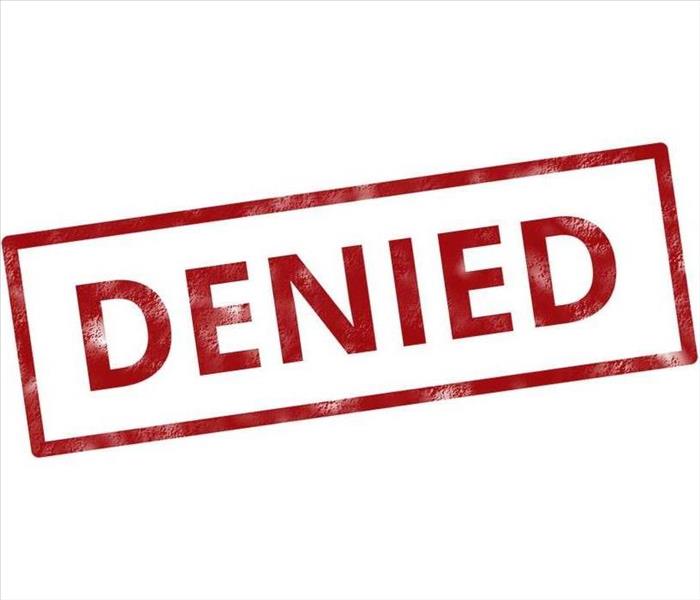What Doesn't Homeowners' Insurance Cover for Mold Damage?
5/20/2019 (Permalink)
{You should check with your insurance agent as to the specifics of what your personal homeowner's coverage plan provides - this isn't extensive or a guarantee of coverage or lack thereof, just what is most common.}
Homeowners' insurance covers mold damage if it was caused by a "covered peril." [See our other blog, "What Does Homeowners' Insurance Cover for Mold Damage?"] Otherwise, an insurance company will likely not cover mold damage. There are exceptions, which we will get into later. Homeowners' insurance policies usually don't cover mold that resulted from a preventable water leak, flooding, or high humidity.
When homeowners’ insurance will likely NOT cover you:
Your basement pipes freeze and burst. You don't notice it for a few weeks. Now, you have a few inches of water on your floor and mold growing.
Broken shingles on your 40-year-old roof allows water into the attic. Water saturates wood and insulation and leads to mold in the attic.
Mold forms in your shower. You don't think much about it until one day you notice that it's really unsightly and you're concerned about whether it's making your family sick.
In these cases, an insurer will likely not cover the damage. Why? An insurance company expects you to take care of your house. That means properly ventilating the bathroom, replacing an old roof, and checking your basement regularly; An important reason to stay on top of home maintenance.
Also, the standard homeowners' insurance policy does not cover water damage caused by a flood. Thus, if a flood causes water damage that leads to mold, the resulting mold issue would not be covered by your home policy.
A separate flood policy may cover mold and mildew, as long as it’s not caused by the homeowner’s failure to inspect and maintain the property after the flood. That means that, once you can get back into your home, you need to start trying to clean up and keep mold from growing or spreading.
How do you know if my homeowner insurance policy covers mold?
As mentioned earlier, homeowners’ insurance companies usually don't cover mold damage unless it's directly related to a "covered peril." The good news -- there are exceptions.
Check your homeowner’s insurance policy to see if there is any language about mold claims. Some insurers offer limited coverage for mold claims. This may mean limiting how much the insurer will pay for a mold-related claim. An insurer may increase the cost of a home insurance policy if you have mold-related coverage.
If you don't have mold coverage, you can buy an endorsement to your insurance policy that adds mold coverage. An endorsement is when an insurance company adds additional coverage to a regular home insurance policy, for an additional fee.
SERVPRO of Rockwall/Rowlett has experience working with insurance providers, as well as with individuals. We can help navigate the mitigation of your home mold damage with your insurance company if it's covered, or help you navigate the remediation if it isn't.




 24/7 Emergency Service
24/7 Emergency Service
